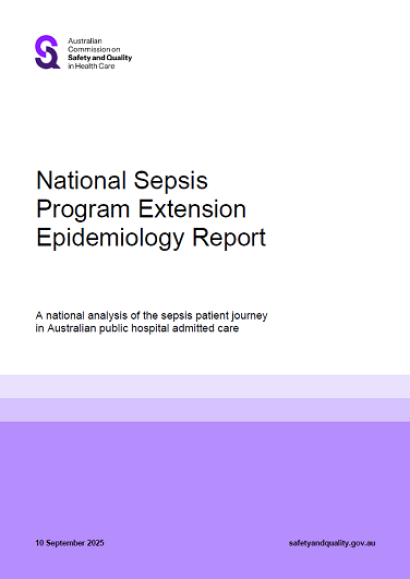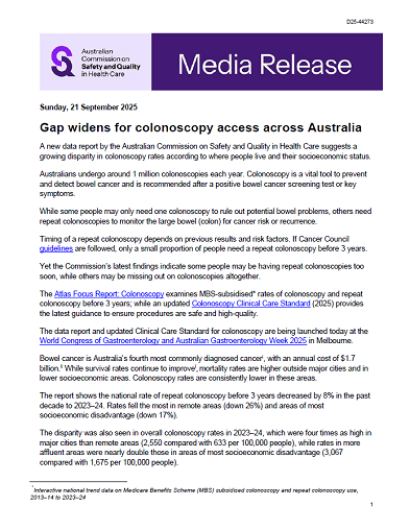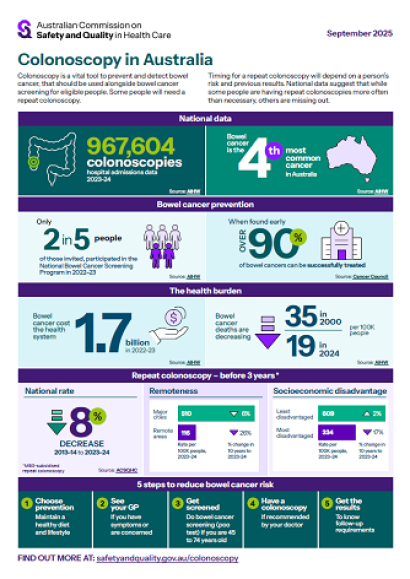Consultation is now open on a draft Emergency Laparotomy Clinical Care Standard, which will help optimise patient outcomes.
This Saturday, 13 September, is World Sepsis Day, an important reminder that sepsis remains one of the most urgent and under-recognised challenges facing our healthcare system.
- Conjoint Associate Professor Carolyn Hullick, Chief Medical Officer
The Commission is seeking feedback on the revised National Pathology Standard from the pathology workforce and consumers.
A national analysis of the sepsis patient journey in Australian public hospital admitted care.
World Sepsis Day, on 13 September each year, raises awareness of sepsis and spotlights life-saving resources to support clinicians, patients, carers and communities in early detection, timely treatment and safer recovery.
MEDIA RELEASE
A new data report by the Australian Commission on Safety and Quality in Health Care suggests a growing disparity in colonoscopy rates according to where people live and their socioeconomic status.
A new data report by the Australian Commission on Safety and Quality in Health Care suggests a growing disparity in colonoscopy rates according to where people live and their socioeconomic status.
The Commission released the Atlas Focus Report: Colonoscopy with national trend data, and the updated Colonoscopy Clinical Care Standard (2025) on 21 September 2025.
This A4 infographic showcases key data insights on colonoscopy in Australia, including bowel cancer.
On the Radar Issue 712 is now available.
On the Radar Issue 711 is now available.



